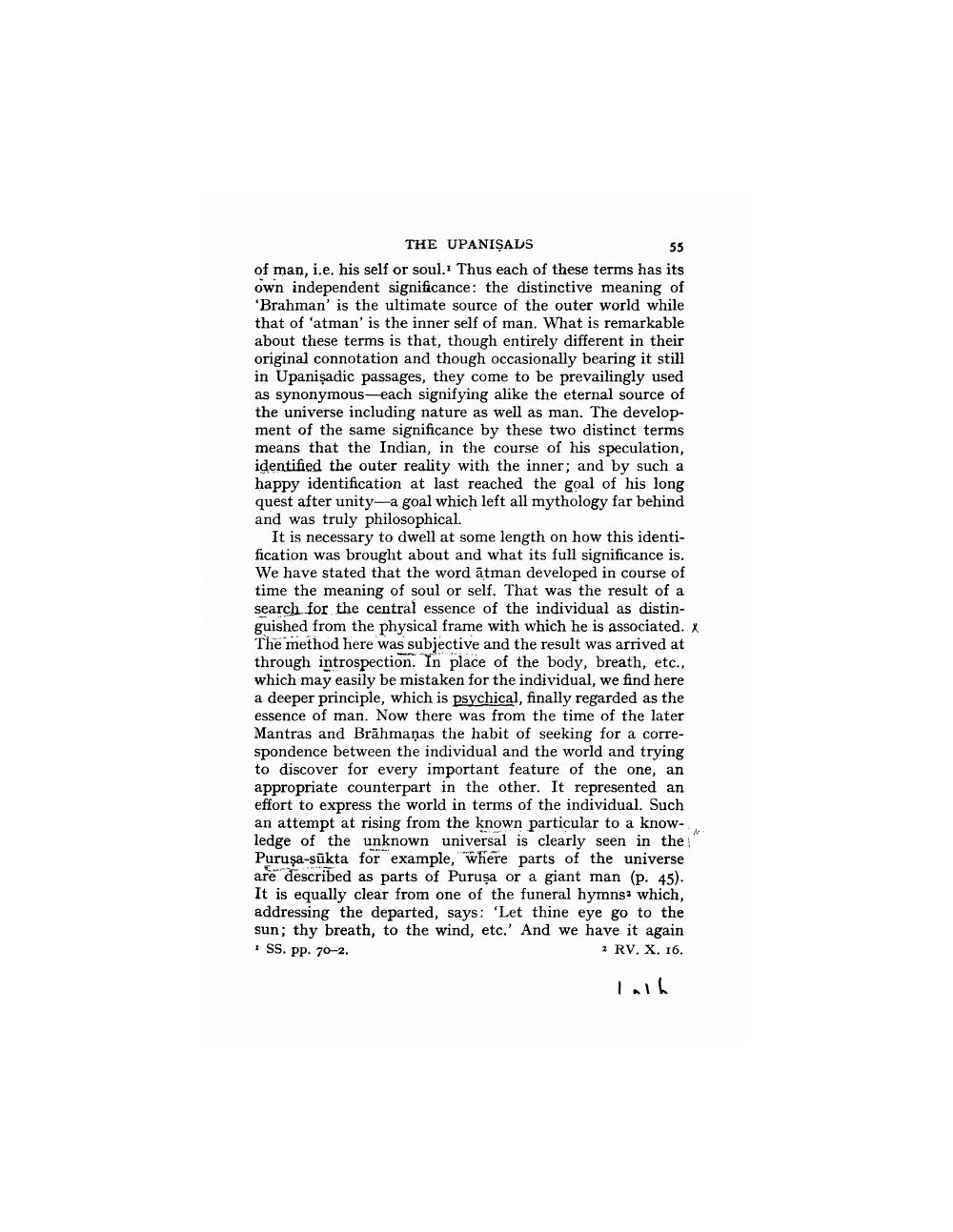________________
THE UPANIŞALS of man, i.e. his self or soul. Thus each of these terms has its own independent significance: the distinctive meaning of 'Brahman' is the ultimate source of the outer world while that of 'atman' is the inner self of man. What is remarkable about these terms is that, though entirely different in their original connotation and though occasionally bearing it still in Upanişadic passages, they come to be prevailingly used as synonymous-each signifying alike the eternal source of the universe including nature as well as man. The development of the same significance by these two distinct terms means that the Indian, in the course of his speculation, identified the outer reality with the inner; and by such a happy identification at last reached the goal of his long quest after unity-a goal which left all mythology far behind and was truly philosophical
It is necessary to dwell at some length on how this identification was brought about and what its full significance is. We have stated that the word ātman developed in course of time the meaning of soul or self. That was the result of a search for the central essence of the individual as distinguished from the physical frame with which he is associated. X The method here was subjective and the result was arrived at through introspection. In place of the body, breath, etc., which may easily be mistaken for the individual, we find here a deeper principle, which is psychical, finally regarded as the essence of man. Now there was from the time of the later Mantras and Brāhmanas the habit of seeking for a correspondence between the individual and the world and trying to discover for every important feature of the one, an appropriate counterpart in the other. It represented an effort to express the world in terms of the individual. Such an attempt at rising from the known particular to a knowledge of the unknown universal is clearly seen in the Purusa-sūkta for example, where parts of the universe are described as parts of Puruşa or a giant man (p. 45). It is equally clear from one of the funeral hymnsa which, addressing the departed, says: 'Let thine eye go to the sun; thy breath, to the wind, etc.' And we have it again SS. PP. 70-2.
* RV. X. 16.
Tall




